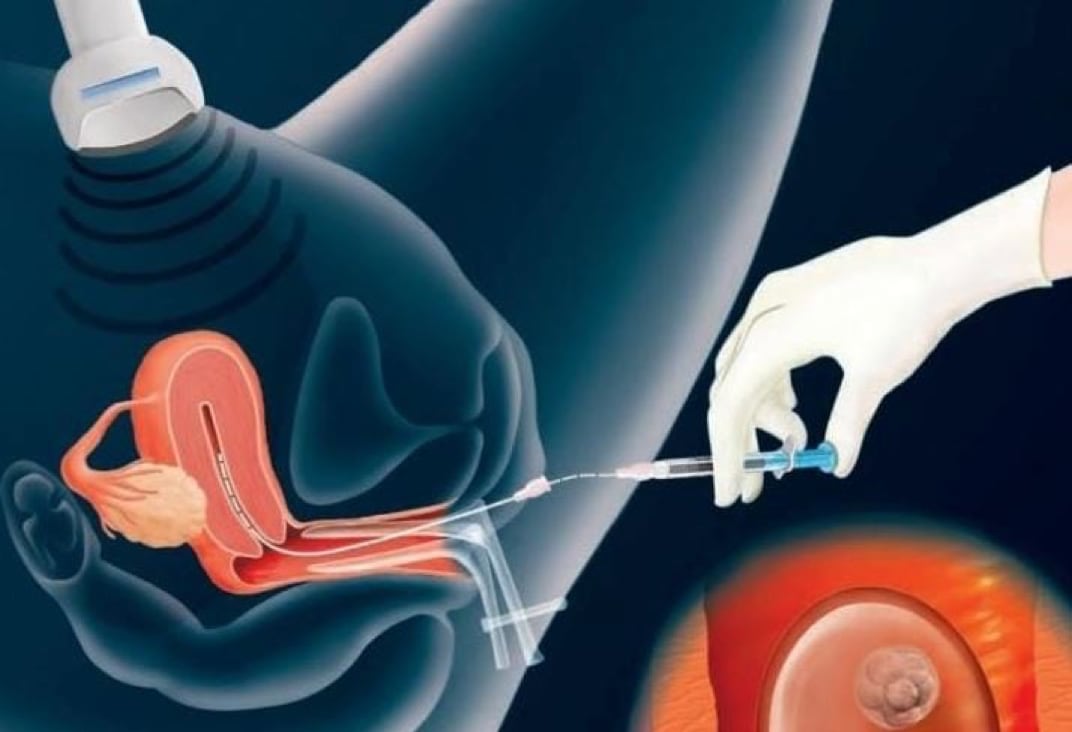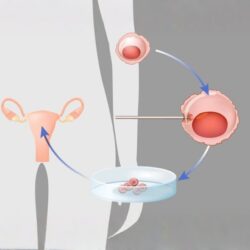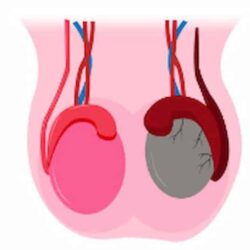What Is IVF Embryo Transfer?
Embryo transfer is a crucial step in the process of in vitro fertilization (IVF). It involves the placement of one or more fertilized embryos into the uterus of a woman who is undergoing fertility treatment. IVF embryo transfer is typically performed after the woman has undergone ovarian stimulation, egg retrieval, and fertilization in the laboratory.
Preparing for Embryo Transfer
Before the actual embryo transfer, the woman’s uterus needs to be prepared to increase the chances of successful implantation. This may involve hormonal medications to thicken the uterine lining and create an optimal environment for the embryos to implant. The woman may also be advised to refrain from sexual intercourse and certain physical activities for a specific period before the transfer.
The Embryo Transfer Procedure
The embryo transfer procedure is usually a relatively simple and painless outpatient process that does not require anesthesia. It typically takes place two to six days after fertilization, depending on the stage at which the embryos were developed in the laboratory.
Post-Embryo Transfer Care
After the embryo transfer, the woman may be advised to rest for a short period before going home. It is essential to follow any post-procedure instructions provided by the fertility clinic, which may include avoiding vigorous activities and abstaining from certain medications or substances that could potentially interfere with embryo implantation.
Following the transfer, the woman may be prescribed progesterone supplementation to support the uterine lining and enhance the chances of successful implantation. This hormone can be administered through vaginal suppositories, injections, or other forms as recommended by the healthcare provider.
The Two-Week Wait
Following the embryo transfer, the woman enters a two-week period commonly referred to as the “two-week wait.” During this time, she awaits the outcome of the procedure and whether she will achieve a pregnancy. It is important to note that pregnancy tests should not be taken during this period, as they can yield inaccurate results.
Tips for a Successful IVF Embryo Transfer
Maintaining a Healthy Lifestyle
Maintaining a healthy lifestyle leading up to and during the IVF embryo transfer process can contribute to its success. Here are some tips to consider:
Balanced Diet:
Ensure you have a well-balanced diet that includes a variety of nutrients. Focus on consuming fresh fruits, vegetables, whole grains, lean proteins, and healthy fats. Adequate nutrition can support reproductive health and overall well-being.
Regular Exercise:
Engage in moderate exercise regularly, as recommended by your healthcare provider. Exercise can help manage stress levels, promote blood circulation, and maintain a healthy weight.
Stress Management:
Find healthy ways to manage stress, as high stress levels can potentially impact fertility. Consider incorporating stress-relieving activities into your routine, such as meditation, yoga, deep breathing exercises, or engaging in hobbies you enjoy.
Follow Medical Instructions
To optimize the chances of a successful IVF embryo transfer, it’s crucial to follow the medical instructions provided by your fertility specialist.
Medication Adherence:
Take prescribed medications as directed, including hormonal medications that support the uterine lining and improve implantation chances. Adhering to the medication schedule is vital for achieving the desired hormonal balance.
Pre-transfer Preparations:
Follow any pre-transfer instructions carefully, such as abstaining from sexual intercourse for a specified period or avoiding certain substances that could potentially interfere with the implantation process.
Post-transfer Care:
After the embryo transfer, follow the post-procedure instructions provided by your fertility clinic. This may involve recommendations on rest, restrictions on certain activities, and guidelines for progesterone supplementation.
Positive Mindset and Patience
Maintaining a positive mindset and having patience throughout the IVF embryo transfer process can be beneficial. Keep the following in mind:
Stay Positive:
Cultivate a positive outlook and believe in the possibilities. Surround yourself with positive affirmations and visualize a successful outcome.
Patience and Acceptance: Understand that the IVF journey can have its ups and downs. Practice patience and accept that the process may take time. Be kind to yourself and trust in the expertise of your medical team.
Embryo transfer is a crucial step in the IVF process, and several factors can contribute to its success. By maintaining a healthy lifestyle, following medical instructions, seeking emotional support, and fostering a positive mindset, you can optimize your chances of a successful IVF embryo transfer. Remember, every individual’s journey is unique, and it’s essential to be patient, kind to yourself, and remain hopeful throughout the process.








